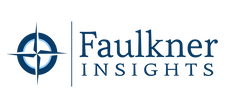 Translate Learning Into Insights With a Well-Planned Debrief Wait, isn’t this series about qualitative research? Debriefing isn’t really part of that, right? Wrong! By the “debrief”, I mean the time the team spends after the research discussing the learning together. This ranges from non-existent (on the client side) to a rushed 30 minutes of discussion before flights to (rarely) full day analysis sessions. You’ve just invested hours, if not days, observing and listening to consumers speak about your industry, category, products or services and, hopefully, how those things relate to their lives. Rushing out of your research without the due diligence of an in-depth debrief session with your team is like spending hours preparing a multi-course gourmet meal, taking a couple bites and then throwing the rest of it in the trash. It’s a huge waste! Qualitative research and the debrief session that follows should be planned in tandem—think about the outcome needed and work backwards to purposefully plan the exercises, discussions and experiences that will give you the raw input you need to put it all together afterwards. For example, ‘day in the life’ ethnography sessions might be translated into a single story or sample schedule for your target consumer. Or, metaphor elicitation done during a session can provide the input for creating archetypes in the analysis session after. It takes more time and discipline to plan this kind of research, but it’s difficult (if not impossible) to get the level of deep, actionable insights you need without it. It also has the very important benefit of deeper team engagement, which can bring diverse perspectives and help buy-in for the resulting conclusions and recommendations. How do you get maximum value from your research debrief? Using listening guides during the research and/or creating analysis templates in advance can be a big help. Consider learning processing activities like picture analysis (for consumer collages), mind-mapping, creating consumer hierarchies of need or other mental models. Listening is the easy part—putting it all together to actually extract the insights is hard work. An experienced moderator with strong facilitation skills can be invaluable for this. If it’s a multi-day project, build in time at the end of each day as well as at the conclusion of the project. As a rule of thumb, the more concrete and specific the research objective, the shorter the debrief and vice versa. For example, if you’re doing a handful of interviews to optimize a specific piece of creative with specifically defined learning objectives, you can probably complete the debrief in an hour or two. However, if you’re doing fundamental consumer or market segment understanding, gathering inspiration for future innovation, or doing in-depth ethnography, consider spending at least 50% (or maybe even up to 75%) of the time spent with consumers doing debriefing/analysis afterwards . Bottom line: to maximize value, qualitative research shouldn’t be considered over until all possible value has been extracted from the findings and applied to business challenges and opportunities via actionable conclusions and recommendations.
0 Comments
Leave a Reply. |
AuthorSarah Faulkner, Owner Faulkner Insights Archives
July 2021
Categories
All
|

 RSS Feed
RSS Feed
